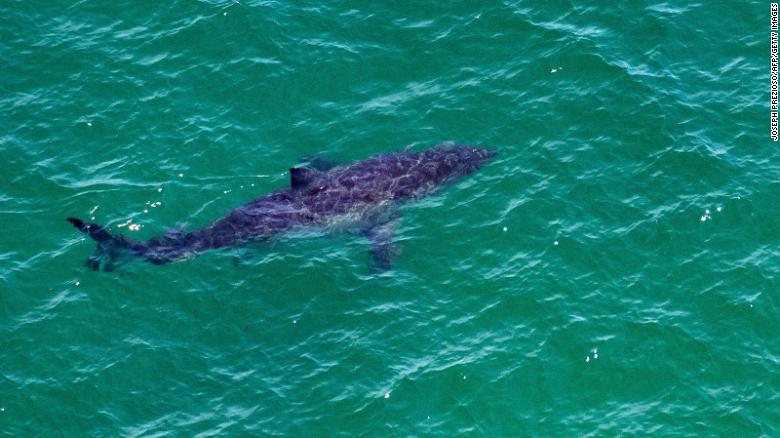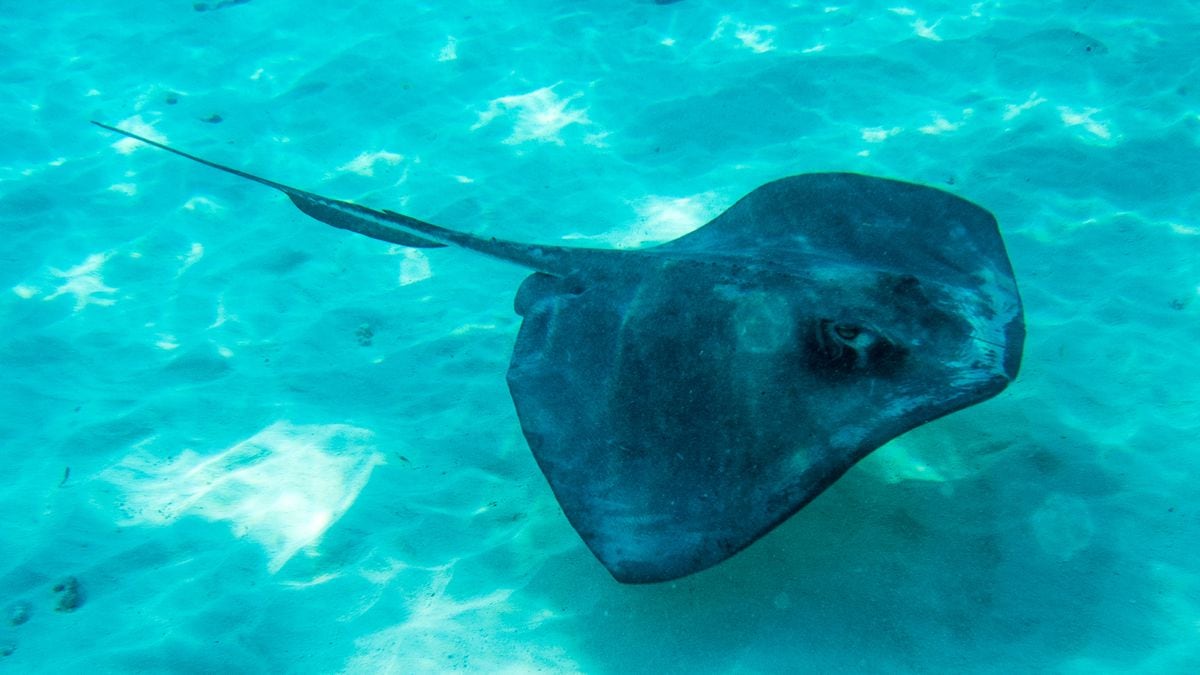The relationship between shark attacks and rising temperatures 1:36
(CNN) --
Several reports of shark bite injuries and a spate of sightings of these marine predators off the northeastern coast of the United States have shocked swimmers this summer.
But is this unique to Long Island, New York, and Cape Cod, on the Massachusetts peninsula, where many of the suspected shark encounters have taken place?
Yes and no, according to Gavin Naylor, director of the Shark Research Program at the University of Florida in Gainesville.
Sharks are millions of years older than dinosaurs, and five other surprising facts
Globally, shark attacks are at similar levels to previous years, said Naylor, who is also a curator at the Florida Museum of Natural History, but there are signs that the US northeast coast could be experiencing a rebound.
"We're on trend for this time of year. I think globally, we typically have 70 to 80 unprovoked shark bites around the world. But it's a global phenomenon. And it's unevenly distributed," Naylor explains. .
"One year we might have two or three bites in Hawaii, one after another. The next year, it could be New Caledonia; it could be Western Australia. And this year, it could be off the coast of Long Island."
Naylor declined to give totals for the year so far, saying it takes time to investigate and authenticate reported bites.
(Naylor's work at the Florida Museum of Natural History involves tracking data on shark attacks.)
Last year there were 73 confirmed cases of unprovoked shark bites, in line with a five-year average of 72 annual incidents.
However, there were 11 shark-related deaths, compared to an average of five per year.
advertising
A bull shark swims above minnows off the North Carolina coast.
Bait fish are abundant, thanks to the warm ocean currents of the Gulf Stream, said Gavin Naylor of the University of Florida.
Multiple Shark Sightings on Cape Cod and Long Island Cause Beach Closures
fish, not humans
Sharks encountered by swimmers off Long Island were looking for food, not humans, Naylor explained.
Most have been identified as bull sharks, Naylor said, which, while fearsome in appearance, are not considered aggressive.
They may have ventured into coastal waters to feed on the abundant schools of minnows close to shore.
The banks were especially dense this year due to warm ocean currents that break off from the Gulf Stream in the Atlantic Ocean and sweep up the northeast coast, he explained.
These waters are richer in chlorophyll, which allows plankton to flourish, which also attracts minnows.
"These fish form schools of hundreds of thousands, or millions," explains Naylor, "and when they come close to shore, the sharks follow them."
"Sharks are swimming around trying to chase their dinner. People are splashing around with beach balls in their circle... The surf zone gets pretty murky from all the energy and the sharks get agitated because they're excited to see all this food. .. once in a while they make a mistake."
Another point contributing to this problem is the existence of a nursery for bull sharks, discovered in 2016, off the near-shore waters of Long Island's Great Southern Bay, where sharks feed and grow from several months to 5 year old.
(The sharks hatch off the coast of the southeastern US before migrating north and spending the summer in New York waters and heading south again in the fall, according to the Wildlife Conservation Society.)
Unlike adult bull sharks, which are up to 2.7 meters long, 1.2 to 1.5 meter juveniles may be more likely to come closer to shore to chase fish.
"As you can imagine, (same as with any mammal), juveniles don't have as much experience. They don't have as much pattern recognition ability as adults," Naylor said.
"We strongly suspect that these are young sharks and their judgment and discernment between what is someone's foot and what is a flash of fish scales."
"You have a group of adolescent sharks and they are running around chasing fish."
A great white shark swims about 50 meters off the coast of Cape Cod National Seashore, Massachusetts on July 15.
great white sharks
Off the coast of Cape Cod, where several great white sharks have been spotted this summer, a different dynamic has occurred that has caused at least one beach to close.
Naylor said there are no reports of shark bites, to his knowledge.
During the summer and fall, white sharks hunt seals, their preferred prey, along the region's coastline, which can bring them closer to popular beaches.
A study published last year in the journal Wildlife Research, based on tagging data from 14 sharks, found that they spent nearly half of their time at a depth of 15 feet or less.
This means that there is a high potential for its presence in recreational waters frequented by swimmers and surfers.
Shark attacks are back in the news, but many other phenomena are much more dangerous
"Until now we didn't know how much time they spent in shallow water near shore," lead author Megan Winton, a research scientist with the Atlantic White Shark Conservancy, said in a news release last year.
This nonprofit organization, based in North Chatham, Massachusetts, provides funds and resources for scientific research to improve public safety.
The white shark population off Cape Cod has increased in tandem with the local seal population, which rebounded in the decades after the 1972 Marine Animal Protection Act.
It is the only place in the Atlantic Ocean where white sharks gather.
To date, researchers have identified and tagged about 300 white sharks, but there is no official population estimate yet.
Since 2012, there have been four unprovoked white shark attacks on humans off the Cape Cod coast, including a deadly attack in 2018, the first in Massachusetts since 1936.
No matter the type of shark, Naylor said the steps to protect yourself are similar: don't swim or surf
alone, and don't swim near large schools of fish or if you see seals nearby.
Don't wear jewelry in the water that a shark might mistake for the glitter of fish scales.
If you see a shark, get out of the water slowly.
Don't panic or splash around.
sharks










/cloudfront-eu-central-1.images.arcpublishing.com/prisa/KMEYMJKESBAZBE4MRBAM4TGHIQ.jpg)


